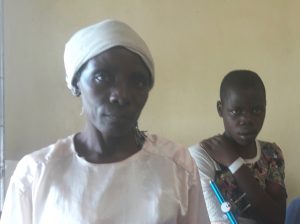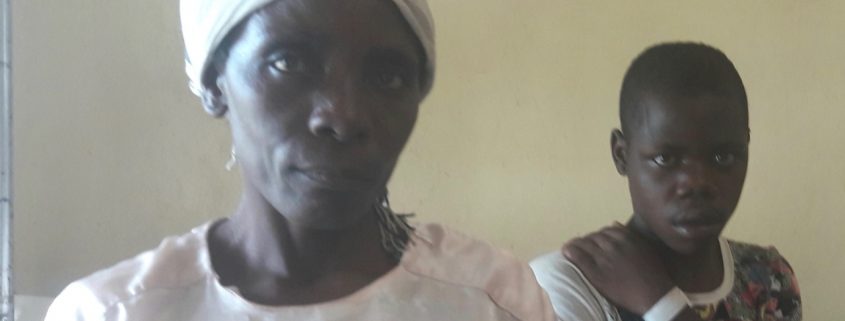A sad 16-year old
Enock was just one year old when he had his first epileptic fit. Now 16, his whole life has been affected by the fits and the responses of local people to both him and his family.
In most of Africa the traditional understanding of epilepsy is the same as for mental illness. There is a widespread belief that these problems are caused by demons, evil spirits who enter the person and cause the abnormal behaviour. Another explanation might be that someone else is jealous and has organised the local “witchdoctor” to put a spell or curse on the person who then develops what we know as epilepsy. Sometimes it is thought that the ancestors are angry with the family or community, and have chosen this person to become sick to demonstrate their displeasure.
Modern medicine has shown that epilepsy is caused by an abnormality in the brain, which we can see and measure through brain wave recordings and brain scans. We understand a lot about the cause, and we can treat the illness very well with the right tablets. However, people in the villages have little or no idea about such things.
If you believe that the problem is evil spirits, you would not think to go to a hospital for treatment, but you would naturally go to the local African church for prayers to exorcise the demons. Sometimes these prayers can go on all night, even for days and nights, giving the person no sleep.
Enock’s mum was left a widow with her two boys. They have tried traditional medicine and prayers. They have also sometimes come to their local health centre where they can get modern medicine for the epilepsy. However, sometimes the medicine has been out of stock. Over the years Enock’s treatment has been very erratic. In addition, the health centre staff who treated him forgot that a little boy becoming a teenager would need bigger doses of medicine as he grew up. For all these reasons his fits have not been well controlled.
People in the villages of Uganda are very afraid when they see someone behaving strangely. There is a fear that if the “possessed” person comes too close, the demons might enter them too! People with mental illness and epilepsy are also widely regarded as “useless”. The children at Enock’s school often taunted and mistreated him. He attended just one year of primary schooling before he gave up.
If you keep having fits, people in the community can treat you cruelly. And continuing fits do further harm to your brain, with the results that in in the end you can’t think very clearly or learn very easily. There are other possible harms as well, if you go on having fits, and you may come to physical as well as mental harm. This has happened to Enock who suffered a really serious accident.
Ugandan houses in the villages often have an open fire in the main room where everyone lives, cooks and eats. Recently Enock fell into the fire in a fit, and his arm was burnt to the bone. His mum delayed bringing him for treatment so the injury got infected, and Enock has now had to be admitted to hospital and has needed complicated surgery to start repairing the damage.
When we met Enock and his mum, I was struck by how sad he looked. He has little to do at home, a few household chores maybe, or making simple bricks. But many employers would never think of employing someone with epilepsy or mental illness. Who knows what might happen if the strange behaviour started when this person was at work?
We discovered that Enock has all the signs of depression, and we weren’t surprised. The mental health team will now get to know him better, and try to get his medication properly sorted out. They will talk with him, so that he can begin to feel better about himself.
We’d like to get him and his mum some support from the village health team worker. The team might even be able to help him with some work therapy. As with many of the Bwindi team’s patients, getting them into the kind of employment that earns regular money helps them gain some self-respect. And the community also learns that these people are certainly not useless.
Maybe some conversations with the local community could help too. In another town, the mental health team ha s worked really hard at telling people about modern treatment for both epilepsy and mental illness. Of the hundreds of people who heard this message, almost no-one knew there was such a treatment. However, if people could be encouraged to come for modern medicines and treatment, there might be much more hope for Enock and people like him.
s worked really hard at telling people about modern treatment for both epilepsy and mental illness. Of the hundreds of people who heard this message, almost no-one knew there was such a treatment. However, if people could be encouraged to come for modern medicines and treatment, there might be much more hope for Enock and people like him.
We asked mum and Enock how they would feel about us taking a photo, explaining that we wanted others to understand what it is like for them, having to deal with these problems every day. They agreed. As we showed him his photograph, Enock smiled for the first time that day.
Maureen Wilkinson
If you would like to support us in bringing help to people like Enock, please click on the Donate button and make a donation, today. All donations, large and small are welcome. Thank you



